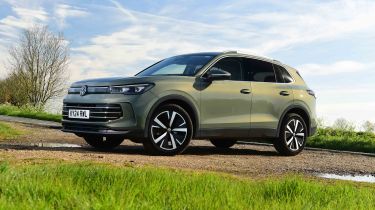Volkswagen Tiguan - Reliability & safety
The Tiguan’s strong Euro NCAP rating is offset by VW’s poor customer satisfaction in the Driver Power survey

Since VW’s eHybrid system is in its second generation, any teething troubles with the original set-up should have been ironed out. The system is also used in a number of VW Group PHEVs, so there should be strength in numbers in terms of dependability.
It’s too early for the latest Tiguan to appear in the Driver Power customer satisfaction survey, but VW as a brand needs to do more to keep its customers happy. It dropped a further two places from its 2023 score to come in 29th out of 32 manufacturers in the 2024 results. It only just beat rival Ford (30th) and was outperformed by stablemates SEAT (24th) and Skoda (23rd), and was a long way behind Hyundai (17th), Toyota (8th) and Kia (3rd).
The Tiguan earned a full five-star Euro NCAP rating in 2024, with high scores in all categories. Every model features adaptive cruise control, driver fatigue detection, road-sign recognition, automatic main beam, lane-change assist, oncoming vehicle braking and rear cross-traffic alert.
| Key standard safety features | Euro NCAP safety ratings |
|
Warranty
There’s a standard three-year/60,000-mile warranty with the Tiguan, which is behind the best cover offered by the likes of Hyundai, Kia and some Chinese brands. It also doesn’t even last as long as the five-year or 90,000-mile policy offered by fellow Volkswagen group stablemate, Cupra. You can add an extended warranty, but for extra cost. VW offers a hybrid battery degradation warranty that lasts for five years or 100,000 miles, but this is non-transferable beyond the first owner.
Servicing
VW offers service plans that suit your car and mileage, with an oil inspection service at 12 months, then a full service at 24 months or 18,600 miles, whichever comes sooner. A two-year plan for the Tiguan eHybrid costs around £500.








